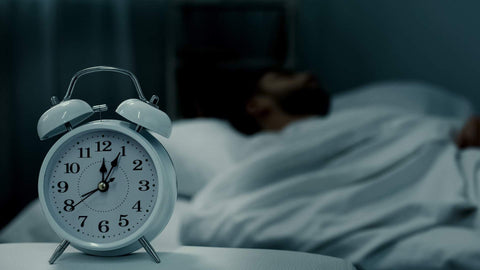The term "beauty sleep" isn't just a catchy phrase - it's rooted in scientific evidence. Getting adequate rest each night can have profound effects on your appearance and overall well-being. While you slumber, your body undergoes important restorative processes that impact your skin, weight, and even your attractiveness to others.
Beauty sleep refers to the regenerative effects that quality sleep has on your physical appearance and health. Understanding these benefits can motivate you to prioritize getting enough shut-eye each night. From reducing dark circles to improving skin elasticity, proper sleep habits play a crucial role in helping you look and feel your best.
1) Improved Skin Tone
Beauty sleep can work wonders for your skin tone. When you get enough quality sleep, your body increases blood flow to your skin. This enhanced circulation helps deliver essential nutrients and oxygen to skin cells.
The result? You wake up with a more even and radiant complexion. Your skin appears fresher and more vibrant, with a natural glow that's hard to achieve through other means.
Adequate sleep also allows your skin to repair and regenerate. During rest, your body produces new collagen, which helps maintain skin elasticity and smoothness. This process can reduce the appearance of fine lines and wrinkles.
Lack of sleep, on the other hand, can lead to a dull, uneven skin tone. You might notice dark circles or puffiness under your eyes when you don't get enough rest. Your skin may also look pale or blotchy due to poor circulation.
To maximize the skin-enhancing benefits of beauty sleep, aim for 7-9 hours of quality sleep each night. Sleeping on your back can also help prevent fluid buildup under your eyes, contributing to a more even skin tone.
2) Reduced Dark Circles
Beauty sleep can significantly impact the appearance of dark circles under your eyes. When you get enough quality sleep, your body has time to repair and rejuvenate skin cells.
Adequate rest helps improve blood circulation, reducing the pooling of blood under the thin skin around your eyes. This can minimize the visibility of dark circles and puffiness.
Sleep also helps regulate fluid balance in your body. Proper hydration can prevent the formation of shadows under your eyes, which contribute to the appearance of dark circles.
Consistent, quality sleep allows your body to produce collagen, a protein that helps maintain skin elasticity. This can make the delicate skin under your eyes more resilient and less prone to showing dark circles.
By prioritizing beauty sleep, you give your body the opportunity to combat stress and fatigue. These factors often contribute to the formation of dark circles and can make existing ones more noticeable.
3) Enhanced Hair Growth
Beauty sleep can have a positive impact on your hair growth. During sleep, your body produces growth hormones that stimulate hair follicles.
These hormones help promote thicker, stronger hair. Quality sleep also improves blood circulation to your scalp, delivering essential nutrients to hair roots.
Adequate rest reduces stress levels, which can contribute to hair loss. By getting enough sleep, you help maintain a healthy hormonal balance that supports hair growth.
Sleep also allows your body to repair and regenerate cells, including those in your hair follicles. This process can lead to healthier, more vibrant hair over time.
Aim for 7-9 hours of sleep per night to maximize these benefits. Consistent, quality sleep can help you achieve fuller, shinier hair as part of your overall beauty routine.
4) Brighter Eyes
Beauty sleep can significantly impact the appearance of your eyes. When you get enough rest, your eyes look brighter and more vibrant. Proper sleep reduces puffiness and dark circles, giving you a refreshed and alert appearance.
During sleep, your body increases blood flow to the skin, including the delicate area around your eyes. This improved circulation helps reduce fluid buildup, minimizing under-eye bags and puffiness.
Adequate sleep also helps maintain the moisture balance in your eyes. Well-hydrated eyes appear clearer and more radiant. You'll notice a reduction in redness and irritation that often comes from fatigue.
Getting enough rest allows your eyes to fully recover from daily strain. This means less squinting and fewer fine lines around the eye area. Your eyes will appear more open and energetic, contributing to an overall youthful look.
To maximize these benefits, aim for 7-9 hours of quality sleep each night. Consider sleeping with your head slightly elevated to further reduce fluid accumulation around the eyes.
5) Better Complexion
Sleep plays a crucial role in maintaining a healthy complexion. During rest, your skin cells regenerate and repair damage from daily environmental stressors.
Getting adequate sleep helps boost blood circulation to your face, giving you a natural, healthy glow. This improved blood flow also aids in the delivery of essential nutrients to your skin.
Lack of sleep can lead to a dull, lackluster complexion. It may also cause dark circles and puffiness around your eyes, making you appear tired and older.
Quality sleep supports your body's production of collagen, a protein that keeps your skin firm and elastic. This can help reduce the appearance of fine lines and wrinkles.
Proper rest also helps balance your skin's moisture levels, preventing dryness and promoting a smoother, more even texture. You may notice your skincare products work more effectively when you're well-rested.
By prioritizing good sleep habits, you can enhance your natural complexion and achieve a more radiant, youthful appearance. Aim for 7-9 hours of quality sleep each night to reap these beauty benefits.
6) Less Puffiness
Beauty sleep can significantly reduce facial puffiness. When you get adequate rest, your body has time to regulate fluid balance and reduce water retention.
Lack of sleep often leads to fluid accumulation around your eyes, causing that puffy, swollen look. Proper sleep allows your body to flush out excess fluids and toxins.
Elevating your head slightly while sleeping can also help minimize fluid buildup. This position encourages lymphatic drainage and reduces morning puffiness.
Staying hydrated throughout the day and limiting salt intake before bed can further enhance the puffiness-reducing effects of beauty sleep. These habits work in tandem with your body's natural healing processes during rest.
Consistent, quality sleep also helps maintain healthy cortisol levels. High cortisol can contribute to inflammation and puffiness, so keeping it balanced is key for a fresh-faced appearance.
By prioritizing beauty sleep, you give your body the opportunity to reset and restore, resulting in a less puffy, more refreshed look when you wake up.
7) More Youthful Appearance
Beauty sleep can significantly contribute to a more youthful appearance. When you get enough quality sleep, your body produces growth hormones that help repair and regenerate skin cells.
This process can reduce the appearance of fine lines and wrinkles, giving your skin a smoother, more youthful look. Proper sleep also helps maintain skin elasticity, which is crucial for a fresh-faced appearance.
Adequate rest improves blood circulation, bringing essential nutrients to your skin. This enhanced blood flow can give you a healthy, radiant glow that's often associated with youth.
Sleep also helps regulate inflammation in the body, which can reduce puffiness and redness in your face. This can result in a more even skin tone and texture, contributing to a younger-looking complexion.
By prioritizing your sleep, you're investing in your skin's long-term health and appearance. Consistent quality sleep can help you maintain a more youthful look over time, complementing other skincare efforts you may be making.
The Science Behind Beauty Sleep
Beauty sleep is more than just a catchy phrase. Scientific research has revealed how sleep affects our appearance and skin health through complex biological processes.
Impact on Skin Health
Sleep plays a crucial role in skin repair and regeneration. During deep sleep, your body increases blood flow to the skin, allowing for better nutrient delivery and toxin removal. This process helps maintain skin elasticity and reduces the appearance of fine lines and wrinkles.
You may notice a more even skin tone after a good night's rest. This is because proper sleep promotes collagen production, the protein responsible for skin structure and firmness. Adequate sleep also helps balance skin hydration, reducing puffiness and dark circles under the eyes.
Consistently poor sleep can lead to increased inflammation in the body, potentially exacerbating skin conditions like acne or eczema. By prioritizing quality sleep, you give your skin the opportunity to heal and rejuvenate.
Role of Hormones
Sleep directly influences hormone production and regulation, which in turn affects your appearance. During sleep, your body releases growth hormone, essential for tissue repair and cell regeneration.
Lack of sleep can disrupt cortisol levels, often called the stress hormone. Elevated cortisol can break down collagen, leading to premature aging and skin issues. It may also increase oil production, potentially causing acne breakouts.
Melatonin, the sleep hormone, acts as a powerful antioxidant. It helps protect your skin from damage caused by UV rays and other environmental stressors. Quality sleep ensures optimal melatonin production, supporting your skin's natural defense mechanisms.
Ghrelin, the hunger hormone, increases with sleep deprivation. This can lead to unhealthy food cravings and potential weight gain, indirectly affecting your overall appearance.
How Much Sleep is Necessary?
Adults generally need 7-9 hours of sleep per night to reap the full benefits of beauty sleep. Your individual needs may vary slightly based on factors like age, activity level, and overall health.
Consistency is key. Try to maintain a regular sleep schedule, going to bed and waking up at similar times each day. This helps regulate your body's internal clock and optimize sleep quality.
Quality matters as much as quantity. Aim for uninterrupted sleep in a dark, quiet, and cool environment. Avoid screens for at least an hour before bed, as blue light can disrupt your sleep cycle.
Consider your sleep stages. A full night's rest should include multiple complete sleep cycles, each lasting about 90-120 minutes. This allows you to experience all stages of sleep, including deep sleep and REM sleep.
Pay attention to how you feel. If you wake up feeling refreshed and energized, you're likely getting enough sleep. Persistent daytime fatigue or difficulty concentrating may indicate you need more rest.
Remember, even one night of insufficient sleep can affect your appearance. Prioritize getting enough sleep consistently to maximize the beauty benefits of rest.
Tips to Enhance Beauty Sleep
Optimizing your sleep environment and habits can significantly boost the beauty benefits of your nightly rest. These practical tips will help you maximize your beauty sleep potential.
Creating the Ideal Sleep Environment
Transform your bedroom into a sleep sanctuary. Keep the room cool, between 60-67°F (15-19°C), as this temperature range promotes better sleep. Invest in blackout curtains or a sleep mask to block out light, which can interfere with your body's natural sleep-wake cycle.
Choose comfortable, breathable bedding materials like cotton or bamboo. A supportive mattress and pillow are crucial for proper spinal alignment and preventing sleep wrinkles.
Minimize noise disturbances with earplugs or a white noise machine. Remove electronic devices from your bedroom or use blue light filters to reduce exposure to sleep-disrupting wavelengths.
Diet and Beauty Sleep
Your eating habits can impact sleep quality and skin health. Avoid heavy meals close to bedtime, as digestion can interfere with sleep. Instead, opt for a light snack if you're hungry.
Incorporate sleep-promoting foods into your evening routine. Tart cherries, kiwis, and fatty fish contain nutrients that support sleep and skin health. Stay hydrated throughout the day, but limit fluid intake before bed to prevent sleep disruptions.
Caffeine can linger in your system for hours, so avoid coffee, tea, and chocolate in the afternoon and evening. Alcohol may help you fall asleep faster, but it can lead to poor sleep quality and dehydration, negatively affecting your skin.
Importance of a Consistent Sleep Schedule
Maintaining a regular sleep schedule helps regulate your body's internal clock. Aim to go to bed and wake up at the same time every day, even on weekends. This consistency reinforces your natural sleep-wake cycle, leading to better sleep quality.
Establish a relaxing bedtime routine to signal to your body that it's time to wind down. This could include activities like reading, gentle stretching, or meditation. Avoid stimulating activities or stressful conversations before bed.
If you can't fall asleep within 20 minutes, leave your bedroom and do a calming activity until you feel sleepy. This helps associate your bed with sleep, strengthening the connection between your bedroom and restfulness.



